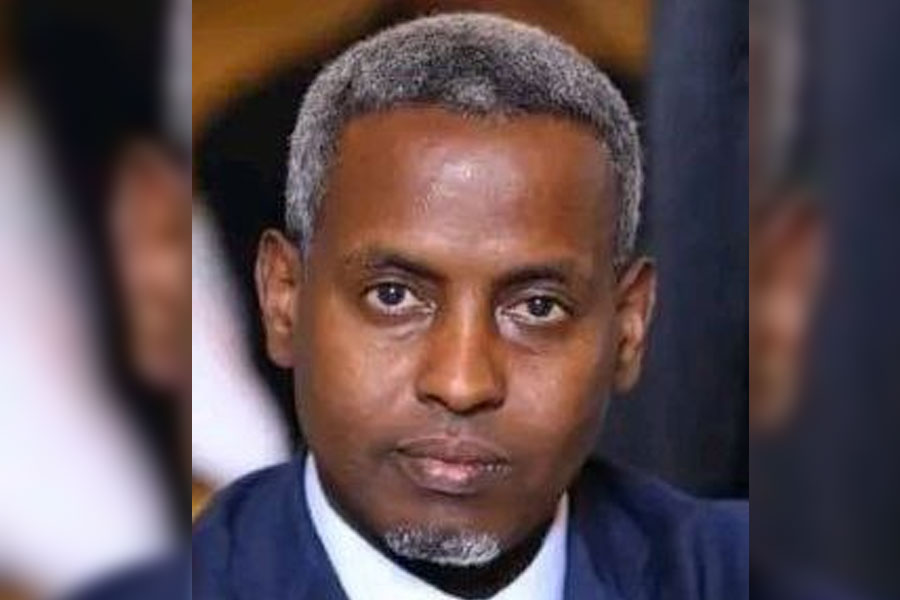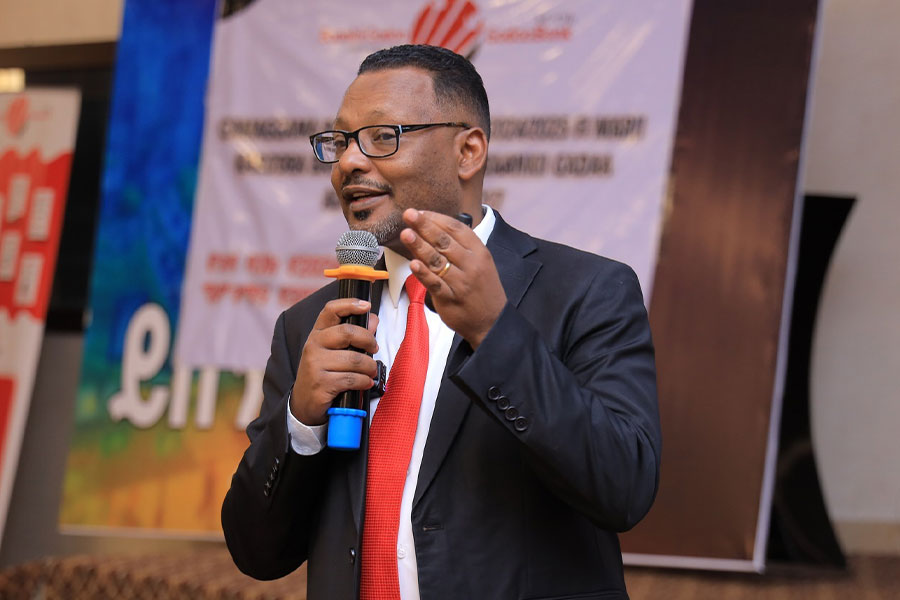
Fortune News | Nov 05,2022
Apr 22 , 2023
By Anne O. Krueger
The international community's process for responding to sovereign-debt emergencies urgently needs to be improved. The IMF's role has been, and should remain, that of a lender of last resort, argues Anne O. Krueger, a former first deputy managing director of the IMF and a professor of international economics at the Johns Hopkins University, in this commentary provided by Project Syndicate (PS).
When Sri Lanka's economic crisis burst into international headlines a year ago, it had already been worsening for many months. Critical fuel shortages prevented people from going to work, and consumer goods could not be distributed. With imports having virtually ceased, medicines and other essential goods were scarce or entirely unavailable. By July, starving people mobbed the presidential palace. The president had already fled the country.
Yet it was not until last month that the International Monetary Fund (IMF) sought and obtained approval from its board for a loan to Sri Lanka to enable lifesaving flows of food, fuel, medicines, and other vital necessities. And even then, the board made disbursal of the loan conditional on assurances from holdout creditors – namely, China – that they would agree to a restructuring.
Nor is Sri Lanka alone in awaiting receipt of funds. The Economist reports that 21 poor countries are either in default or awaiting loan restructuring.
To be clear, such delays are not the IMF's fault. The Fund's charter stipulates that it can lend only when there are assurances that sustainable economic activity will be restored. If a country's debt burden is too high, all its creditors must agree to a haircut (a reduction of the principal owed); otherwise, any new loans it receives will go toward servicing its debts to the holdouts. Equally important, the extent to which economic activity recovers will depend on the government's policy mix. This almost always will need to be adjusted to improve on past performance.
The current delays are the result of China's refusal to take the same haircut as other creditors. Chinese bilateral lending has grown rapidly over the past decade and now accounts for almost half of all government credits to poor countries. Generally, when a debtor country cannot repay China, the latter will extend a new loan to finance the debt-servicing obligations, thus increasing the amount the debtor owes.
In the past, debts from official creditors to borrowing countries were restructured through the Paris Club of sovereign creditors, which comprises mostly advanced economies such as the United States, Japan, and France. When an indebted country's debt-servicing costs grew unacceptably high, its government would approach the Paris Club, private creditors, and the IMF for relief.
While the IMF assessed countries' macroeconomic situation and prescribed policy reforms to restore sustainability, the Paris Club and private creditors would meet to agree on a debt-restructuring plan. The IMF would then approve the program and release the funds, but only after it had received assurances that the country would indeed undertake the needed reforms.
Now that China is such a major creditor, this process has run into a wall. While multilateral official lenders have pushed for a coordinated debt-restructuring process, China has refused to write down the value of its loans. It would prefer simply to roll over poor countries' debt by loading them up with more.
Yes, critics of the traditional approach bemoan the fact that the interest owed by some poor countries exceeds the amounts they allocate to health and education. But those critics should ask what happened to the borrowed funds. If the money had been put toward productive purposes, the country's debt probably would be on a more sustainable footing. It is worth recalling that while South Korea borrowed massively (to the tune of around 10pc of GDP annually) during its period of high growth in the 1960s, its debt-servicing costs as a share of GDP actually fell.
The international community's process for responding to sovereign-debt emergencies urgently needs to be improved. The IMF's role has been, and should remain, that of a lender of last resort. But it is also the key authority for determining whether an indebted country's projected policy changes will drive a satisfactory recovery in economic performance.
At the IMF/World Bank Spring Meetings this month, the Fund's Managing Director, Kristalima Georgieva, announced an agreement "to improve information sharing on macroeconomic projections and debt sustainability assessments at an early stage of the debt restructuring process." But while that might improve the process somewhat, it will not be enough. More promising is The Economist's argument that IMF loans to poor countries should be made contingent upon the recipient's commitment to refuse to service the debt of any holdout creditor.
That would certainly put more pressure on China.
Another option is to link debt restructuring to other issues. For example, perhaps a bargain could be reached between the IMF's two largest shareholders, with China joining the Paris Club and agreeing to write-downs in exchange for the US rescinding the Trump-era trade-war tariffs on Chinese goods.
Any policy that accelerates and strengthens the international community's crisis-resolution process would greatly benefit the poor in many low-income countries. Moreover, linking Paris Club membership to other contentious issues – such as reviving the World Trade Organization's dispute-resolution mechanism – would increase welfare globally.
Something must be done – and quickly. The world's poor should not have to pay the price for disagreements among the world's largest creditors.
PUBLISHED ON
Apr 22,2023 [ VOL
24 , NO
1199]


Fortune News | Nov 05,2022

Fortune News | Jul 03,2024

Delicate Number | Jul 13,2025

Viewpoints | Aug 10,2024

Exclusive Interviews | Sep 07,2025

Radar |

Commentaries | Jul 07,2024

Fortune News | Oct 05,2025

Commentaries | Dec 24,2022

Fortune News | May 31,2025

Photo Gallery | 176301 Views | May 06,2019

Photo Gallery | 166517 Views | Apr 26,2019

Photo Gallery | 157001 Views | Oct 06,2021

My Opinion | 136899 Views | Aug 14,2021

Dec 22 , 2024 . By TIZITA SHEWAFERAW
Charged with transforming colossal state-owned enterprises into modern and competitiv...

Aug 18 , 2024 . By AKSAH ITALO
Although predictable Yonas Zerihun's job in the ride-hailing service is not immune to...

Jul 28 , 2024 . By TIZITA SHEWAFERAW
Unhabitual, perhaps too many, Samuel Gebreyohannes, 38, used to occasionally enjoy a couple of beers at breakfast. However, he recently swit...

Jul 13 , 2024 . By AKSAH ITALO
Investors who rely on tractors, trucks, and field vehicles for commuting, transporting commodities, and f...

Oct 18 , 2025
The political establishment, notably the ruling party and its top brass, has become p...

Oct 11 , 2025
Ladislas Farago, a roving Associated Press (AP) correspondent, arrived in Ethiopia in...

Oct 4 , 2025
Eyob Tekalegn (PhD) had been in the Governor's chair for only weeks when, on Septembe...

Sep 27 , 2025
Four years into an experiment with “shock therapy” in education, the national moo...

Oct 18 , 2025 . By NAHOM AYELE
In a sweeping reform that upends nearly a decade of uniform health insurance contribu...

A bill that could transform the nutritional state sits in a limbo, even as the countr...

Oct 18 , 2025 . By SURAFEL MULUGETA
A long-planned directive to curb carbon emissions from fossil-fuel-powered vehicles h...

Oct 18 , 2025 . By BEZAWIT HULUAGER
Transaction advisors working with companies that hold over a quarter of a billion Bir...